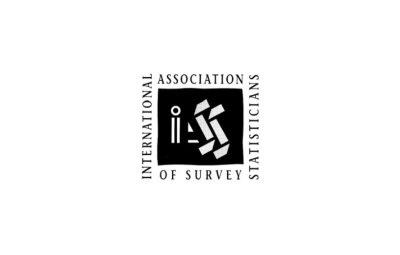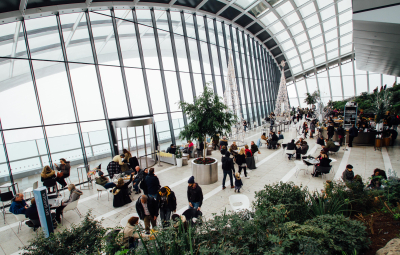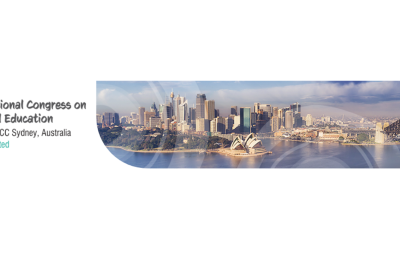I started my scientific activity a long time ago, in the 1980s, and I have seen many changes since then. As a Bayesian statistician, I still remember the days before MCMC (Markov chain Monte Carlo) and then the blossoming of Bayesian works after MCMC became so popular. Six Sigma, Big Data, Data Science are concepts which I have encountered over the years, and they opened new perspectives and challenges for a mathematical statistician like me. Changes also occurred in my knowledge of statistical associations. I started with SIS and ASA, the Italian and US statistical associations, and with UMI (the Italian Mathematical Union) due to my Italian origin and affiliation and US studies. Then I broadened my interests to specialised international societies, such as IMS (Institute of Mathematical Statistics), ISBA (International Society for Bayesian Analysis) and ENBIS (European Network for Business and Industrial Statistics), and I eventually became President of the last two in 2012 and 2005, respectively (as I did with ISBIS in 2019). Finally, I took the last step, and I became an ISI Elected Member (and then Council Member, Vice President, and President-Elect), entering the most important statistical organisation at international level. As you can see, I continued to broaden my horizons, expanding my knowledge about Statistics and statisticians. And ISI is THE perfect place for broadening someone’s views. This is where I met, for example, people working in Official Statistics and I learned (not enough, sorry!) about the problems they are facing and how they are tackling them. ISI is the place where I made new friends and where new collaborations began.
Connect with Others
I described my experience since I think there are many other people in the world who are involved in local and/or specialised associations but they are not taking the last step I mentioned earlier, i.e., becoming an ISI member. I understand that it might be more comfortable and useful to interact with people from the same area (scientific or geographic) but I believe we should be open to broaden our views and meet other statisticians/users of Statistics working in different fields with respect to us. ISI and its seven Associations are the proper place for this!
The questions that come to mind are: Why aren’t there more members? What can we do?
We expect members to be very active in promoting ISI and its Associations and in inviting people to join us, to share the “pleasure” of networking at World Statistics Congresses, meeting people from all over the world, with different background and statistical interests. These meetings are not only an opportunity to share knowledge and develop new cooperation but also (my own opinion, but probably shared by many others) a place where human relations are built and strengthened, regardless of global differences and conflicts. I believe that we, as individuals, should be very involved in what happens around us and in the world and we, as members of a scientific community, should build bridges that bring people together and foster mutual knowledge. I might sound too utopian (and probably I am) but this could be another, albeit tiny, contribution to a better world, as we have done through statistical practice since 1885. This is part of the ISI’s mission, led by strong ethical principles.
We Appreciate Your Input
As I mentioned before, ISI and its Associations can offer the WSC, many events, in person and online, high level scientific journals, but this is not enough for people to join us. We are thinking of many activities which will provide more to the members and will involve them more. Here are some of the ideas we are working on:
- Encourage local meetings, through a series of Regional Statistical Conferences, like the one we are organising in Mexico City (in cooperation with IAOS and INEGI) in May 15-17, 2024. See the conference website.
- Encourage meetings on specific topics (e.g., climate change) where ISI and its Associations can bring different ideas and approaches. This is still under discussion and input is welcome.
- Enhance our regional presence, through groups of ISI members who will organise local events and cooperative activities with local partners. This is still under discussion and input is welcome.
- Develop an ISI Bulletin which will contain easily readable papers on hot topics (maybe from the different perspectives of our Associations, like climate change or open data), interviews, historical facts, curiosities, news on software, teaching experiences, etc. This is still under discussion and input is welcome.
- Promote capacity development through the ISI Academy which will develop courses and many activities with a very diversified offering. I would like to mention that the ISI Statistical Capacity Building Committee has prepared a course on Data Science (thanks to Ann Maharaj, Delia North and Edward Boone) a few years ago (when I chaired it with Irena Krizman). We are working to re-introduce the course, and make it free for all by simply registering with your Google e-mail. More information will follow soon.
Conclusion
We would like people to meet ISI not only every other year at the WSC or at the meetings of our seven Associations, but more often and “next door”. We plan to stimulate voluntary contributions and I would like to hear ([email protected]) your answers to the questions I raised above (especially the second one!):
Why aren’t there more members? What can we do?
P.S. Do not forget to renew your membership!





